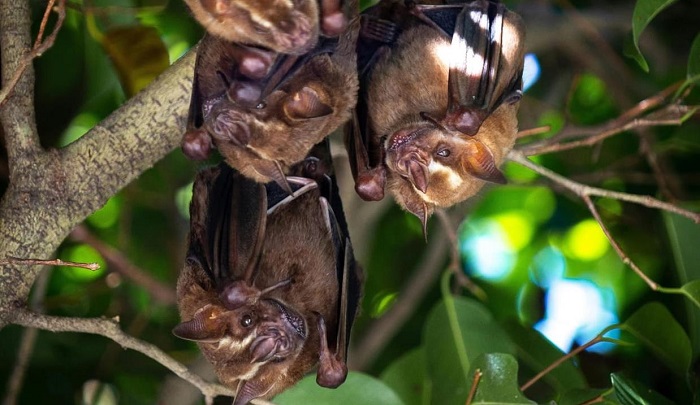On International Bat Appreciation Day, observed on April 17, 2025, conservationist Benneth Obitte underscored the critical role bats play in sustaining ecosystems and preventing disease outbreaks. Speaking to journalists, Obitte emphasised that the health of human populations is deeply connected to the wellbeing of wildlife, particularly bats, and the ecosystems they inhabit.

Bats and Human Health: An Overlooked Connection
“Science has proven that our health is directly tied to the health of our environment and the animals living in it,” Obitte said. “When bats are stressed, their risk of shedding viruses increases, just like rodents. As human activity encroaches on their habitats, the chances of contact – and transmission – rise.”
Obitte explained that bats are essential for ecosystem balance. “We rely on healthy bat populations to pollinate plants, control agricultural pests, and even reduce disease vectors like mosquitoes,” he noted. “Some bat species consume their body weight in insects each night, helping to suppress pests that would otherwise decimate crops and spread disease.”
Ecosystem Engineers: Bats as Pollinators and Seed Dispersers
Obitte highlighted the ecological importance of fruit bats, which serve as mobile seed dispersers. “Fruit bats often fly hundreds of kilometers each night, feeding on fruits and dispersing seeds across forests,” he said. “As they consume fruit juice mid-flight, they drop seeds far from the parent plant – an act that promotes reforestation and plant diversity.”
He added that insectivorous bats are also vital pollinators, especially for plants that bloom at night. “In the U.S. and Europe, bats save farmers millions of dollars annually by reducing the need for chemical insecticides,” he said. “Their ecological services are both invisible and invaluable.”
Public Health Implications: The Zoonotic Threat
While bats can carry viruses, Obitte clarified that the real danger comes from human encroachment. “Zoonotic diseases – those that jump from animals to humans – are more likely when natural barriers are broken,” he warned. One bat species, Rousettus aegyptiacus, has been linked to Marburg hemorrhagic fever, a deadly virus similar to Ebola. “This species is heavily hunted in Nigeria. If even one infected bat comes into close contact with humans, it could spark a public health crisis.”
Habitat Loss and Overexploitation: The Greatest Threats
According to Obitte, the biggest threats to bats in Nigeria are habitat loss and overexploitation. “Smallholder farming, logging, and tree felling are destroying the habitats bats need to survive,” he said. “These activities also threaten many other species.”
He pointed out that overhunting is a growing concern. “The chocolate fruit bat, Africa’s most hunted bat, is being wiped out across the continent. While some species can escape to new habitats, others – especially cave dwellers – are vulnerable to mass killings.”
Lack of Data and Research Gaps
Nigeria is home to over 100 bat species, but Obitte noted that the conservation status of many remains unknown due to insufficient data. “Some species may already be endangered, but we lack the research to confirm it. At the Small Mammal Conservation Organization, we are training new scientists to close this knowledge gap and provide data-driven conservation solutions.”
Obitte called for the enforcement and modernization of Nigeria’s endangered species laws. “Many of our wildlife protection laws are outdated and poorly enforced. We need urgent reforms and better coordination,” he said.
He also emphasized the need for widespread sensitization. “Most people don’t even know their actions – like hunting bats – are illegal. Education and public engagement are key to changing behavior.
Bats are indispensable to healthy ecosystems, food security, and disease prevention. Conserving them isn’t just about saving wildlife – it’s about safeguarding human lives. As Obitte put it: “We don’t need to fear bats if we respect their habitats. But if we continue to destroy the natural buffers between humans and wildlife, we open the door to the next pandemic.”
By Ajibola Adedoye
